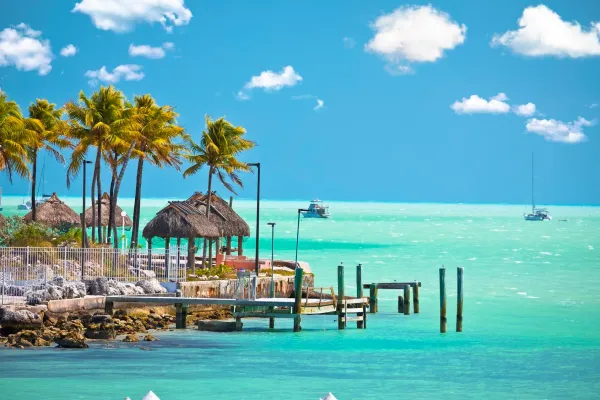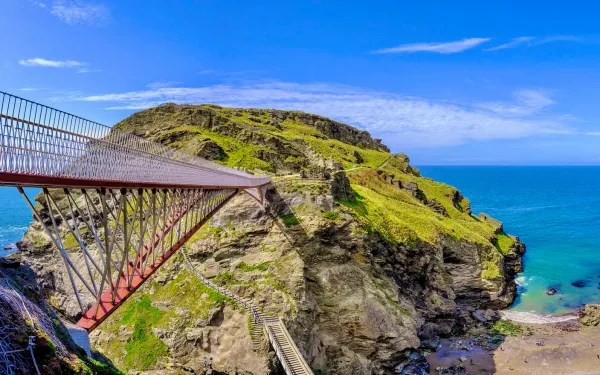Impact of the Israel-Hamas War on Tourism in Jerusalem and Bethlehem
Discover how the Israel-Hamas conflict has transformed the vibrant tourism landscape of Jerusalem and Bethlehem into silent streets and paused pilgrimages.

The recent Israel-Hamas war has had a significant impact on tourism in Jerusalem and Bethlehem. The streets and main square around Bethlehem's Church of the Nativity, which were previously bustling with tourists, are now empty. Hotels across Israel and the Israeli-occupied Palestinian territories have emptied, and tour operators have cancelled trips. Cruise ships are avoiding Israel's shores, and major airlines have stopped flying to and from Israel. InterContinental Hotels has temporarily shut two of its hotels, and Isrotel is considering temporarily closing some hotels due to low occupancy.
This decline in tourism has not only affected the local economy but has also impacted the livelihoods of many individuals who rely on the tourism industry for employment. Tour guides, hotel staff, restaurant workers, and souvenir vendors are among those who have been significantly affected by the decrease in tourist arrivals. The loss of income has created financial hardships for these individuals, further exacerbating the economic consequences of the war.
Furthermore, the absence of tourists has also impacted the cultural and social atmosphere of Jerusalem and Bethlehem. The vibrant energy and diversity that tourists bring to these cities are currently missing, leaving a void that is deeply felt by the local communities. The absence of international visitors has also resulted in a loss of opportunities for cultural exchange and understanding between different communities and nations.
Pilgrimage Sites Affected by the Israel-Hamas War
The Israel-Hamas war has also had a significant impact on Christian pilgrimages, particularly during the coming months.Despite the recent escalation of violence, Bethlehem has seen a boost in Christmas tourism after a two-year hiatus due to the COVID-19 pandemic. The streets are bustling, and hotels are fully booked in Bethlehem, although the numbers are lower than in 2019. Access to Bethlehem has been closed, and some groups are being taken directly to Jerusalem. However, the visit to the Holy Sepulchre in Jerusalem still brings peace and unity to the pilgrims.
The closure of access to Bethlehem has forced tour operators and pilgrims to find alternative routes and ways to visit the holy sites. Some groups have chosen to go directly to Jerusalem, while others have explored options to enter Bethlehem through different border crossings. Despite the challenges, many pilgrims are determined to fulfill their spiritual journeys and are finding innovative solutions to reach their desired destinations.
The impact of the Israel-Hamas war on pilgrimage sites goes beyond the physical and economic aspects. These sites hold immense religious and historical significance for Christians around the world. The inability to visit these holy places has been a source of disappointment and sadness for many believers who had planned their trips with great anticipation. The absence of pilgrims also affects the spiritual atmosphere of these sites, as the presence of devoted individuals seeking solace and connection is an integral part of the experience.
Uncertain Future for Tourism in Jerusalem and Bethlehem
The timeline for the return of foreign visitors to Jerusalem and Bethlehem remains uncertain due to the prolonged conflict. Some tour operators have already cancelled trips to Israel and the Palestinian territories until the end of the year or even until next year. The United States and the United Kingdom have issued travel warnings advising against travel to Israel and the West Bank. Most hotels in the West Bank are empty, and some are even offering rooms to fleeing tourists. The conflict has disrupted future pilgrimage groups for October, November, and December.
The uncertainty surrounding the future of tourism in Jerusalem and Bethlehem poses significant challenges for the industry and the local communities that depend on it. The inability to predict when international travel will fully resume makes it difficult for businesses to plan and adapt their operations accordingly. Without a clear timeline for recovery, many hotels, restaurants, and other tourism-related establishments face the risk of permanent closure, leading to a long-lasting impact on the local economy.
Additionally, the travel warnings issued by various countries further dampen the prospects of a quick recovery in tourism. These warnings discourage potential visitors from considering Jerusalem and Bethlehem as destinations, reinforcing the negative image that has been associated with the recent conflict. Rebuilding trust and promoting the safety and security of these areas will be crucial in attracting tourists back to the region once the situation stabilizes.
Challenges and Recovery Strategies for Tourism
The tourism industry in Jerusalem and Bethlehem faces significant challenges in recovering from the impact of the Israel-Hamas war and the COVID-19 pandemic. Alternative routes or options for tourists to visit Jerusalem and Bethlehem during this time are needed.Some tour groups have managed to find alternative routes through Amman airport in Jordan.
To overcome the challenges and facilitate the recovery of tourism, collaboration and coordination between the Israeli and Palestinian authorities, as well as tourism stakeholders, are essential. Implementing joint marketing campaigns to rebuild the image of Jerusalem and Bethlehem as safe and welcoming destinations can help restore confidence among potential visitors. Strengthening security measures and providing clear information about safety protocols can also contribute to creating a sense of security for tourists.
Furthermore, diversifying the tourism offerings in Jerusalem and Bethlehem can help attract a wider range of visitors. Developing new cultural events, promoting ecotourism initiatives, and expanding the range of activities and experiences available can make these destinations more appealing to different types of travelers. Emphasizing the rich history, religious heritage, and cultural diversity of the region can also enhance its attractiveness as a unique and enriching travel experience.
Comparison with Previous Years
The current situation contrasts with previous years when tourism during the busy period for Christian pilgrimages was thriving. The recent violence has severely impacted the number of visitors and has had economic consequences for the region.
In previous years, the period leading up to Christmas would see Jerusalem and Bethlehem bustling with tourists from all over the world. The streets would be filled with pilgrims, locals, and visitors, creating a vibrant and lively atmosphere. Hotels would be fully booked, and businesses would thrive during this peak tourism season. However, the recent conflict has brought a sudden halt to this bustling activity, leaving behind empty streets and struggling businesses.
The economic consequences of the decline in tourism are significant. Many businesses that rely heavily on tourist spending are facing financial difficulties, with some even at risk of closure. The loss of income has a ripple effect on the entire local economy, impacting various sectors such as transportation, hospitality, retail, and entertainment. The absence of tourism-related revenue also affects the ability of local governments to invest in infrastructure development and social welfare programs.
Importance of Tourism for the Economy of Israel and the Palestinian Territories
Tourism plays a vital role in the economy of both Israel and the Palestinian territories, accounting for a significant portion of GDP and employment. The decline in tourism due to the Israel-Hamas war is a major blow to the industry, which was already recovering from the effects of the COVID-19 pandemic.
Tourism has been a key driver of economic growth and development in the region, providing employment opportunities for thousands of people and generating revenue for the local governments. The sector has been instrumental in showcasing the rich cultural heritage, historical sites, and natural landscapes of Jerusalem and Bethlehem to the world.
The decline in tourism not only affects the direct beneficiaries, such as hoteliers and tour operators, but also has indirect effects on various sectors of the economy. Restaurants, transportation services, souvenir shops, and other businesses that cater to tourists also experience a significant decline in demand. The reduction in tourism-related spending has a multiplier effect on the overall economy, impacting the livelihoods of individuals and the financial stability of businesses across different industries.
The recovery of the tourism industry will be crucial for the economic revival of Jerusalem and Bethlehem. Efforts to rebuild and promote tourism should be prioritized to regain lost ground and ensure the long-term sustainability of the sector. Investing in infrastructure development, improving transportation networks, and enhancing the overall visitor experience can contribute to attracting a diverse range of tourists and creating a positive impact on the local economy.
Conclusion
The Israel-Hamas war has had severe repercussions on tourism and pilgrimage sites in Jerusalem and Bethlehem, with empty streets, closed access, and cancelled trips. The uncertainty surrounding the return of foreign visitors poses a significant challenge to the recovery of the tourism industry. The importance of tourism for the economy of Israel and the Palestinian territories cannot be overstated.
Efforts to rebuild and revitalize the tourism sector in Jerusalem and Bethlehem must be undertaken collaboratively by all stakeholders involved. Governments, tourism authorities, businesses, and local communities need to work together to develop strategies that promote the safety, security, and attractiveness of these destinations. By doing so, they can pave the way for a sustainable recovery and ensure that the cultural and historical treasures of Jerusalem and Bethlehem continue to be accessible and enjoyed by visitors from around the world.





